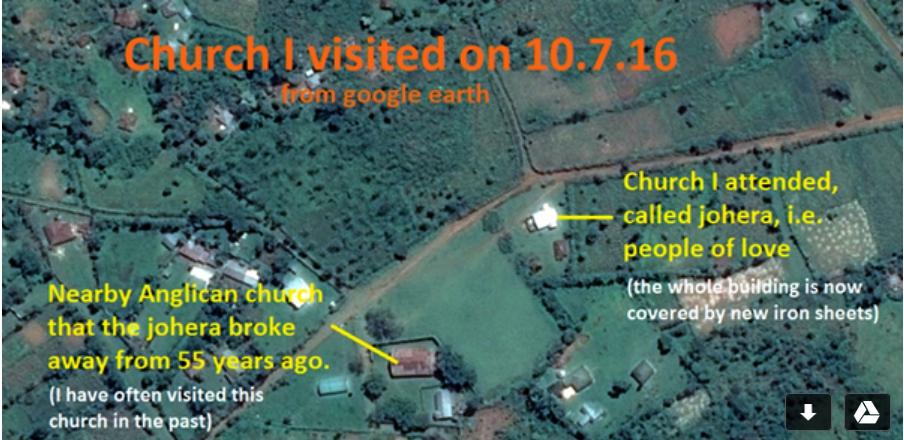NEWS END OF JULY 2016
Dear Friends,
A typical church visit? - 11-07-16
The church had no notice of my coming. It was an hours cycling from home. As I arrived they commented "a white man has come . . . he's parking . . . he's locked his bicycle and so on", they were of course assuming that I couldn't understand what they were saying.
I was taken to their church leaders who were sitting in a circle in an adjoining hut. Next to us the children were already being taught and were singing. The leaders said they did not know me, but one or two clearly knew ‘of me’. Within 5 minutes of arriving I was told "you will be the preacher for the day". 15 minutes later, after they had donned their prayer garb and we went in procession into the back of the church.
This denomination broke away from Anglicans about 60 years ago. They are popularly known as johera (people of love). They always seem the poor-brother of Anglicans, this time no exception. At the time they broke away they permitted polygamy and attendance at church services for the dead, as well as love.
After some Anglican-style-liturgy, I was given opportunity to preach to the 40 or 50 women, 10 men, and 15 children present. I included a lot of drama into my message which all seemed to appreciate. After we were done with the service, we sat for another hour gathering money for the church-building and other needs. Before leaving 8 or so of us leaders had meat, kale and ugali (thick maize porridge) for lunch.

“Kanisa gi sherikal en gimoro achiel.” I seem to be hearing this sentence a lot these days. Translated it could be taken as saying ‘church and government, well that’s one thing’. For some reason, this seems to be a direction taken by churches in my area (quite likely also further afield, I wouldn’t know). Local politicians had divided an area up according to the 30 or so churches present, realising that they could reach everyone in the community through the churches. Elsewhere it is said to emphasise the importance of having an ordained clergy. When the government approaches the church for help or advice, they want to see an ordained man wearing robes. Hence recognition from government requiring an ordination ceremony and clerical attire is further pushing churches down this route. One used to be able to tell Roho ‘indigenous’ churches from Pentecostal churches, because the former wore robes but the latter suits. It looks as if this distinction may be becoming blurred.
See this blog that I wrote, recently posted by Global Connections UK (It is based on a discussion I had with some young people in Norwich earlier this year.)
‘Success must be indirect’. I long ago discovered that it is very hard indeed for African folks to take ‘ownership’ of something if there are any Westerners involved; so strong is the expectation that Westerners pay for things. Hence success in ‘projects’ must be ‘indirect’. That is, one needs to encourage a value that people then interpret into their own context in the absence of a Western missionary. (This must of course be in local languages without Western-missionary-dependent resources.) Hence it was a great joy recently to meet the one-time clerk of Yala Theological Centre who I hadn’t see for 8 years, now married and moved away, and to find her active in Bible teaching and in setting up a theological education centre in her denomination!
Jim
